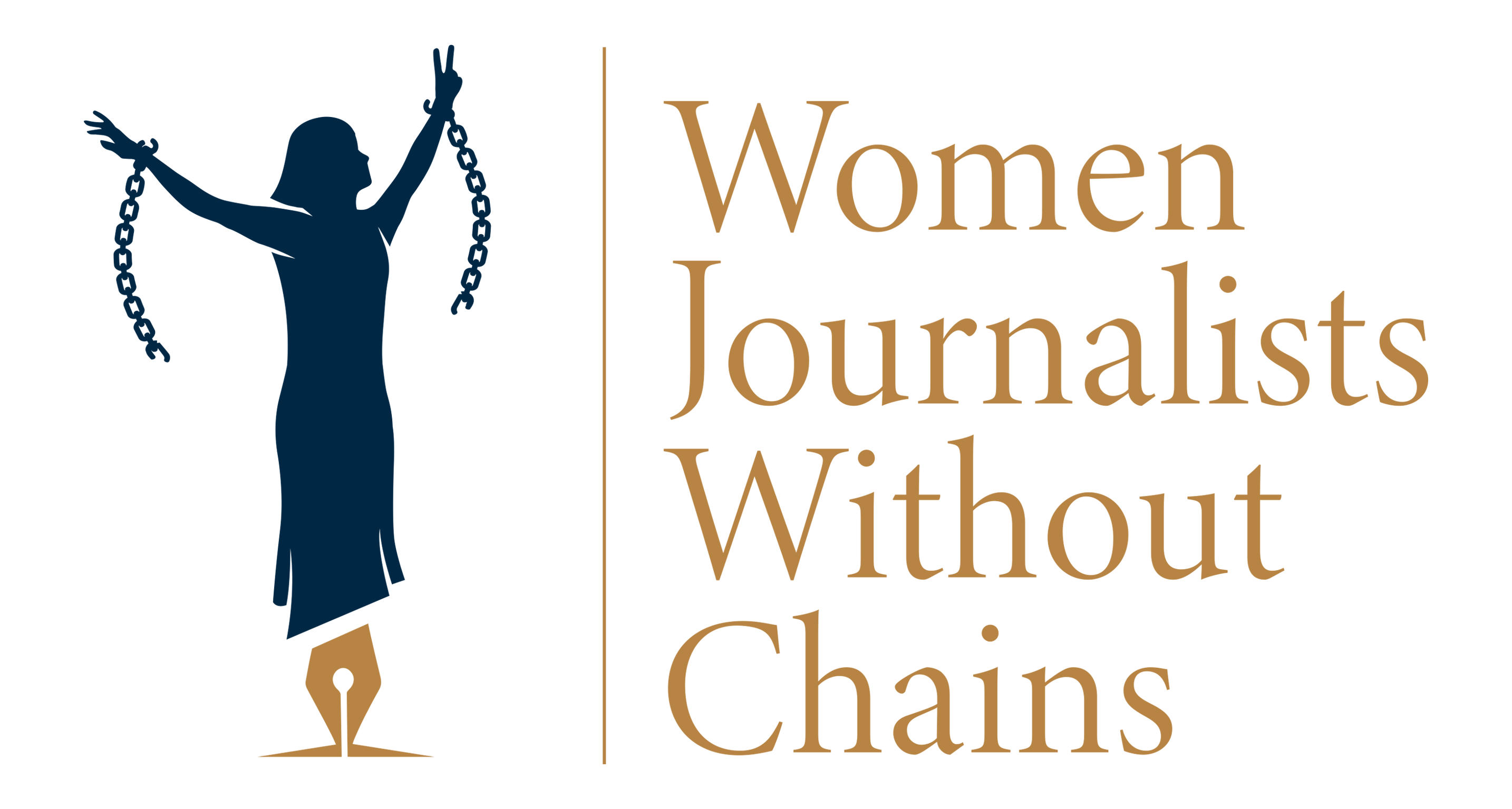Women Journalists Without Chains (WJWC)
is an independent, non-governmental organization dedicated to defending human rights and democracy, and to protecting and advancing freedom of opinion and expression across the Middle East and North Africa.
WJWC envisions a society founded on knowledge, justice, and equal citizenship—where freedom, dignity, and the right to participation and expression form the pillars of every just and democratic order. Guided by these values, the organization works to empower voices, uphold truth, and foster an environment where liberty is shared and sustained as a moral duty.
Adopting a holistic approach to human rights, WJWC stands with those suffering from tyranny, conflict, or discrimination, including women, children, detainees, the marginalized, and refugees. Through rigorous monitoring, documentation, and advocacy—supported by training and awareness programs—it advances justice, promotes accountability, and builds a lasting culture of rights and freedoms.
Central to its mission is a steadfast commitment to press and media freedom, the cornerstone of democracy and the guardian of truth. WJWC empowers journalists and advocates of free expression to work with professionalism, integrity, and safety through specialized training, protection mechanisms, and networks of solidarity. These efforts strengthen the media’s role as a voice for truth, accountability, and justice.
Founded in 2005 in Yemen by Nobel Peace Prize Laureate Tawakkol Karman, WJWC has grown from a national initiative into a leading regional organization active in 21 countries, championing democracy, human rights, and freedom of expression across the Arab world.
Specialized Units of WJWC
1. Human Rights Monitoring and
Documentation Unit:
This unit documents and exposes human rights violations across the Middle East and North Africa—from arbitrary detention and enforced disappearance to torture, gender-based violence, and restrictions on freedom. As WJWC’s principal human rights arm, it advances justice and accountability by verifying abuses in line with international standards and ensuring that truth reaches both the public and those in power.
Its work includes:
• Documenting and reporting human rights abuses with accuracy and integrity.
• Issuing timely statements and in-depth analytical reports.
• Advocating for victims through campaigns and legal support.
• Engaging international mechanisms to demand justice and accountability.
2. Media and Cultural Production Unit:
This unit wields the power of media and culture as catalysts for human rights and freedom. It shines a light on issues of justice, equality, and transparency, inspiring awareness and civic engagement across the region.
Its work spans:
• Creating films, programs, and digital stories that give voice to truth and human dignity.
• Supporting independent media and cultural initiatives that nurture freedom, peace, and dialogue.
• Showcasing productions on regional and global platforms to amplify impact.
• Publishing thought-provoking works that champion democracy, creativity, and pluralism.
3. Conferences and Training Unit:
This unit drives WJWC’s mission to build knowledge, skills, and democratic culture across the region. Through conferences, workshops, and training programs, it strengthens voices that stand for freedom, justice, and truth.
Its work includes:
• Organizing regional forums and workshops on human rights, democracy, and free expression.
• Equipping journalists, media professionals, and activists with the skills—and the safety—to report truthfully in times of conflict.
• Equipping emerging and established leaders—especially youth and women—with the tools to engage, influence, and drive transformative advocacy.
• Promoting citizen journalism to bring stories from conflict and marginalized areas to light.
• Forging partnerships with civil society and academia to sustain a culture of rights and free media.

 En
En  Ar
Ar 